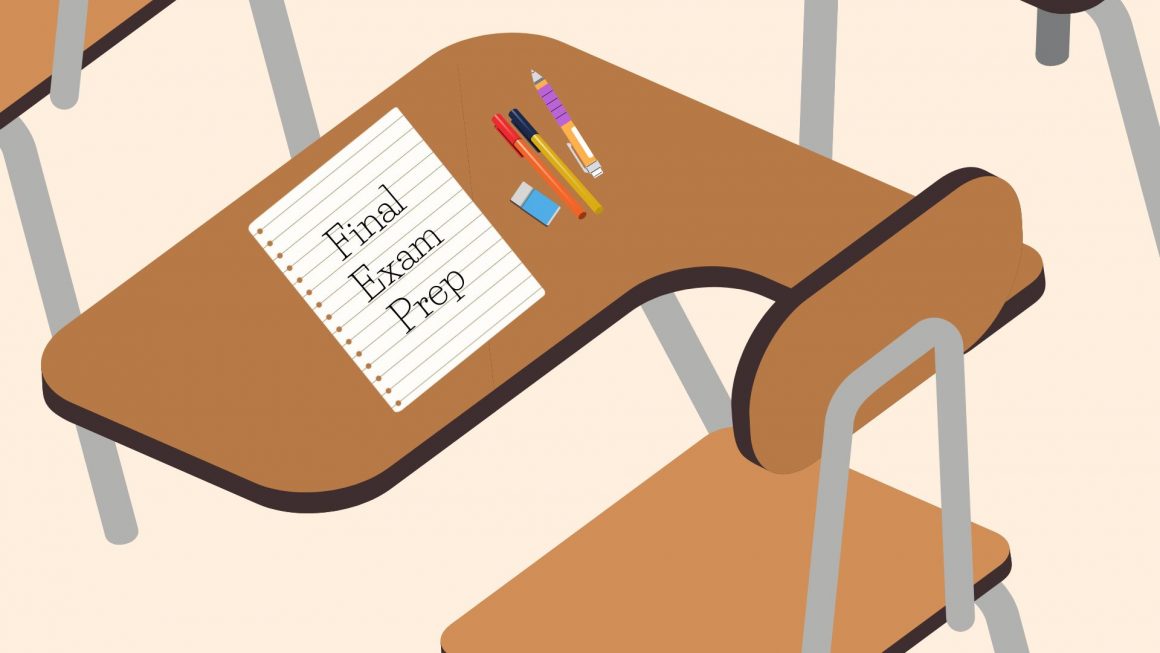
Not your usual exam tips…hopefully
By Sophia Lopez, April 12 2023—
Every time exam season comes along, outdated and redundant exam tips follow. But I think everyone could always benefit from some tips and tricks to make life easier during such a stressful time. As a fourth-year student, I’ve learned how to survive exam season in the least detrimental way possible — at least you’d hope so. Here are some exam tips that helped me during exam season, and I hope some of them can help you too.
Don’t worry about procrastination
Bet you didn’t think you’d see this one did you? As a constant procrastinator, I never believed that success was measured by how early you can prepare for an exam, and this goes for assignments too. What I think is valuable is figuring out the best study method for you to ensure that your late-night study session counts. If you work better under pressure, why should that be a bad thing? Keep procrastinating, but just make sure that you have a system that has been proven to work for you.
Find out what type of learner you are
This tip is more directed toward first-year students. Taking a quick quiz like the one on the Arden University website can help you figure out what type of learner you are. Don’t underestimate the power of the Internet. There are so many videos out there where students share their studying tips and habits that you may want to adapt.
Don’t rely on practice tests
A common rookie mistake, that I even continue to make from time to time, is relying on available practice tests to be ready for an exam. There are a couple of factors that don’t allow practice tests to be the sole preparer for any sort of exam.
The biggest reason is the environment. When taking a practice test, we’re usually taking it at a desk, in a relaxed area, and with no pressure on our minds. In order for a practice test to really benefit you, try taking it as if it were your actual exam. Set a specific time you’re going to do the test, have no notes around you or loud people around you, and give yourself a time limit. I also recommend printing the practice test if possible, that way it feels more realistic.
It’s also very important to ask your professor about the possible questions on the exam, such as what the format will be. Even if it’s the same content, there’s nothing worse than relying on a practice exam that contains questions that look vastly different than the ones on your exam.
Sit with the professor
Sometimes students underestimate the amount of help professors are willing to give to us. While it may seem like some professors don’t want us to succeed at times, the majority do. Attending office hours and having one-on-one conversations with your professors and TAs can sometimes be enough to get your grade bumped up from a B+ to an A-. And who doesn’t like an ego stroke? Definitely not your professor. It’s also important to build connections with those in your field of study, so getting some help from a professor before an exam, or even going through previous exams, is always a plus.
Be realistic
We’re not always going to ace every exam. That’s fine. When situations like this arise, it’s time to start thinking about what realistically you can do to prepare for your exam. Giving up completely isn’t the answer, so try to pinpoint a solid section that you could potentially do well in. While some crazies might be able to, relentlessly trying to cram a semester’s worth of content is not going to allow you to do the best you can on an exam. Pinpointing your strengths and focusing on them can at least guarantee that you get the marks for what you know best. There’s no point in mediocre studying everything at once and not having strong answers for anything.
Good luck to everyone taking exams this semester.
